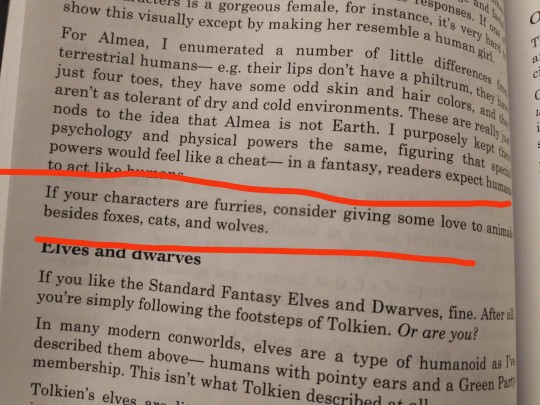Text
when the story is just not working, but you keep writing anyway

353K notes
·
View notes
Text
Sometimes I think about how and why some people had such a *bad* reaction to the end of Steven Universe, specifically in regards to the Diamonds living.

Even though they no longer are causing harm to others and are able to actually undo some of their previous harm by living, some folks reacted as though this ending was somehow morally suspect. Morally bankrupt, even.
And I think it might be because so many of us were raised on a very specific kind of kids media trope:




They all fall to their deaths.
Disney loves chucking their bad guys off cliffs. And it makes sense- in a moral framework where villains *must* be punished (regardless of whether their death will actually prevent further harm or not), but killing of any kind is morally bad for the hero, the narrative must find a way to kill the villain without the protagonists doing a murder.
It's a moral assumption that a person can *deserve* to die, that it is cosmically just for them to die, that them dying is evidence that the story itself is morally good and correct. Scar *deserves* to die, but it would be bad for Simba to kill him. So....cliff. (edit: yes, cliff then hyenas. But cliff first. Lol.)
Steven Universe, whatever else it's faults, took a step back and said "but if killing people is bad, then people dying is bad", and instead of dropping White Diamond off a cliff, asked "what would actual *restorative*, not punitive, justice look like? What would actual reparations mean here? If the goal is to heal, not just to punish, how do we handle those who have done harm?" And then did that.
Which I think is interesting, and that there was pushback against it is interesting.
It also reminds me of the folks who get very weird about Aang not killing Ozai at the end of Avatar. And like, Ozai still gets chucked in prison, so it doesn't even push back on our cultural ideas of punitive justice *that much.* and still, I've seen people get real mad that the child monk who is the last survivor of a genocide that wiped out his entire pacifist culture didn't do a murder.
26K notes
·
View notes
Text
i’m not aromantic but i believe in their beliefs
78K notes
·
View notes
Text
I’m the sort of beginner writer that doesn’t know what they’re doing, like at all.
If I want to describe a scene, what things should I describe? What’s important to note down? What elements need to be introduced first? It feels like stepping onto open air, manifesting a platform through sheer belief.
So I’ve been going over my favorite fics and studying them. Other people’s comments are especially helpful, because I have no idea what to look for. I just know it’s good.
So it looks like I should write thoughts and actions, which imply emotion.
So like… if a character enters a scene, I should write only what they note is important. Then maybe where that rabbit hole goes.
He stepped out, idly letting the door slam shut. The field sprawls out before him, glinting artificially green in the sunlight. He turns and makes his way home instead.
A little choppy, but I think it gets the point across. I guess for thoughts it could be.
He thinks of the old neighborhood, with the patch of live grass the children gathered around. Him and his sister would be in the center of the mass, fighting for the ball. Elbows, knees, every sort of dirty tackle, but they all came out of it laughing.
It makes sense that seeing a school field would invoke thoughts and memories of something similar. The thoughts part is very important, I’m realizing now, because what thoughts linger are where the character’s true feelings lay, no matter how they may lie to themselves about it.
Here, it feels like my character recently moved and… maybe lost something? And misses that thing. The sport may be part of what he misses, but he lingers on the “everyone came out laughing”, so I think he misses the intimacy the most.
Can I try different thoughts? What would that imply?
That field used to be a small grove. Then the city swept in, tore it to bits, and spat out a shiny new stadium that stinks like the old rotten rubber its made of.
This one sounds a lot more derisive. It’s less emotional… ish. I was trying to find a better way to insult old rubber but couldn’t figure it out. But this one sounds more angry, bitter, tired.
This is a really cool exercise! If you want to read the fic that gave me the idea, here. It’s cosmic horror and it’s absolutely gorgeous.
7 notes
·
View notes
Text
It feels like my base state is one of disasociation.
For as long as I can remember, I’ve always just… wandered off, mentally. It’s been difficult in school, but I managed with relatively high grades. I think my constant participation in sports helped a lot, because my concentration always tanked after one stopped.
During pandemic time, I entered university and did not fare well. I had no experience in creating structure for myself. I had no idea what to do in the time inbetween when I was scheduled to do things. I could do anything. I had no idea what to do. How do I decide? What determines if it needs to get done? What if i get interrupted? What if I need to be interrupted? How do I guarantee that I come out the other end okay? It was overwhelming. Is overwhelming.
I spent most of my time checking out. I still do. I don’t know what else to do. I play games that are repetitive and mindless, I read long, LONG stories that sweep me up for days. They pick me up and drop me off like time skip mechanisms in games. Without them, hours stretch into eternities. I have enough time to do something, but not enough time to truly lose myself. That careful tightrope is painful. Or uncomfortable. It feels the same.
It feels like when I have to pick my body up again and take care of it. Water it, feed it, clean it, take it for walks. It feels like when I’m in the shower and I can suddenly feel EVERYTHING, the water, each of my limbs, my scalp, soap, the dead skin between my toes, the sharp smell of sweat reactivating. It feels like too much. I want to slam myself into the wall because it’s too much. I want to slap myself, or gouge my fingernails into my skin and rip it off. I don’t, because I’ve been doing this for years. Showers are exhausting. (Except when they aren’t, for some reason.)
It feels like diasociation is my base state. Staying present is a hard won battle and ground is often quickly lost. It’s like most people have a sliding scale of sensitivity and I only have an on/off switch.
It’s been two weeks that I’ve spent in and out of a fugue state and my responsibilities are shattering around me. I feel like I can only watch them fall.
I rediscovered one of my tactics for going from stillness to standing; I clench my muscles one by one, starting from my toes and moving my way up. It feels like picking at some barrier piece by piece, which I am good at, rather than shattering the whole thing, which I am not.
I wonder if I could teach myself to be more present in a similar way. I’ve heard of body scans before. I suppose I have to make my own sliding scale.
I know there’s probably a silver lining out there, but I don’t want it (right now). I just want to hurt and know that I hurt because why I’m struggling so hard now is because I dreamed the hurt away. This pain is part of my hard won triumph.
This is really, really hard and I don’t like it.
#adhd#autistic#audhd#disabled?#disasociation?#I dont know#adhd inattentive#I dont feel like I’m in pain but I must be#it hurts and I’m crying#diary
1 note
·
View note
Text
UPDATING SOON!
Vetted fundraiser masterpost-masterpost
TRY MY NEW DONATION ASK GAME!!! (COMING SOON)
This is a collection of links to various posts concerning fundraisers I've vetted and instructions on how to submit fundraisers to me. These are primarily ones for Ghazzan families although some fundraisers for Sudanese families are also listed (I'm more familiar with my own country's politics and dialect and am more capable of vetting fundraisers for Palestinians as a result).
I know that people do not like clicking on links, but please actually look through the posts / Google Sheet and choose a fundraiser to donate to. Please.
Instructions on how to submit a fundraiser. (for those not Ghazzan) Paused تعليمات لتقديم طلب توثيق و نشر حملات التبرعات الخاصة بالغزاويين و عائلاتهم (للغزاويين فقط) فاتح!
Google doc list compiling vetted fundraisers.
List of fundraisers for my direct contacts from Ghazzah & Sudan. - PRIORITY.
Unvetted but highly likely legitimate fundraisers.
Additional fundraisers for various purposes - (TO BE UPDATED)
About the targeted harassment campaign against Palestinians on tumblr, from August 2nd to August 3rd 2024. Now extended to August 7th because of writing-prompt-s' and badjokesbyjeff's accusations and slander.
40K notes
·
View notes
Text

One thing I didn’t expect from my new worldbuilding book is the author, roughly my dad’s age, including his opinions on furries
121K notes
·
View notes
Text
How to show emotions
Part VI
How to show insecurity
not holding/breaking eye contact
fidgeting
crossing their arms
trying to cover up their body
making themself seem smaller
playing with their hands
hiding their hands in their pockets
holding their head down
blushing
clearing their throat
biting their nails
biting their lips
nervous laughter
stuttering
How to show being offended
stiffening up
hard line around the lips
frozen stare
narrowing of the eyes
turning their head to the side
quickening heartbeat
turning red
making themself bigger, ready to fight
How to show compassion
gentle and soft smile
relaxed facial features
softening of their eyes
openly showing how they feel
leaning towards the other one
nodding along, not directly interjecting, but encouraging
deep breaths inbetween
gentle touches to comfort
How to show being pleased
big smile/grinning
laying head slightly to the side
moving one shoulder up
pursing their lips while smiling
very open body language
leaning back
Part I + Part II + Part III + Part IV + Part V
If you like my blog and want to support me, you can buy me a coffee or become a member! And check out my Instagram! 🥰
13K notes
·
View notes
Text
Have you ever wondered how tech technicians recover data from faulty flash and memory whose data cannot be recovered by normal methods.
55K notes
·
View notes
Text
I saw this while scrolling


And I know a lot of social media’s response to this will be to call women stupid bitch Karens for being married to Trump voters in the first place, because the internet hates women, but think about how misogynistic Republican men are, and how violent/threatening they are. Think of the Republican men who went to 1/6, and the ones who show up to rallies with rifles. Think of how many Republicans are cops, and the amount of cops who are domestic abusers. Do you really think Republican men are not dangerous to the women and children in their lives?
It should go without saying, but if you’re afraid of your partner finding out who you voted for, you need to get out of that relationship. That’s easier said than done, though, so in the meantime, know that who you actually vote for is not public information. Your voter registration information is public, meaning the fact that you’re registered, what party you’re affiliated with, and that you voted. But no one knows who you voted for in a given election, and you do not need to vote for the party you’re affiliated with in a general election. It’s possible to be a registered Republican and vote for Democrats.
More information here:
40K notes
·
View notes
Text
The Anatomy of Passing Out: When, Why, and How to Write It

Passing out, or syncope, is a loss of consciousness that can play a pivotal role in storytelling, adding drama, suspense, or emotional weight to a scene. Whether it’s due to injury, fear, or exhaustion, the act of fainting can instantly shift the stakes in your story.
But how do you write it convincingly? How do you ensure it’s not overly dramatic or medically inaccurate? In this guide, I’ll walk you through the causes, stages, and aftermath of passing out. By the end, you’ll be able to craft a vivid, realistic fainting scene that enhances your narrative without feeling clichéd or contrived.
2. Common Causes of Passing Out
Characters faint for a variety of reasons, and understanding the common causes can help you decide when and why your character might lose consciousness. Below are the major categories that can lead to fainting, each with their own narrative implications.
Physical Causes
Blood Loss: A sudden drop in blood volume from a wound can cause fainting as the body struggles to maintain circulation and oxygen delivery to the brain.
Dehydration: When the body doesn’t have enough fluids, blood pressure can plummet, leading to dizziness and fainting.
Low Blood Pressure (Hypotension): Characters with chronic low blood pressure may faint after standing up too quickly, due to insufficient blood reaching the brain.
Intense Pain: The body can shut down in response to severe pain, leading to fainting as a protective mechanism.
Heatstroke: Extreme heat can cause the body to overheat, resulting in dehydration and loss of consciousness.
Psychological Causes
Emotional Trauma or Shock: Intense fear, grief, or surprise can trigger a fainting episode, as the brain becomes overwhelmed.
Panic Attacks: The hyperventilation and increased heart rate associated with anxiety attacks can deprive the brain of oxygen, causing a character to faint.
Fear-Induced Fainting (Vasovagal Syncope): This occurs when a character is so afraid that their body’s fight-or-flight response leads to fainting.
Environmental Causes
Lack of Oxygen: Situations like suffocation, high altitudes, or enclosed spaces with poor ventilation can deprive the brain of oxygen and cause fainting.
Poisoning or Toxins: Certain chemicals or gasses (e.g., carbon monoxide) can interfere with the body’s ability to transport oxygen, leading to unconsciousness.
3. The Stages of Passing Out
To write a realistic fainting scene, it’s important to understand the stages of syncope. Fainting is usually a process, and characters will likely experience several key warning signs before they fully lose consciousness.
Pre-Syncope (The Warning Signs)
Before losing consciousness, a character will typically go through a pre-syncope phase. This period can last anywhere from a few seconds to a couple of minutes, and it’s full of physical indicators that something is wrong.
Light-Headedness and Dizziness: A feeling that the world is spinning, which can be exacerbated by movement.
Blurred or Tunnel Vision: The character may notice their vision narrowing or going dark at the edges.
Ringing in the Ears: Often accompanied by a feeling of pressure or muffled hearing.
Weakness in Limbs: The character may feel unsteady, like their legs can’t support them.
Sweating and Nausea: A sudden onset of cold sweats, clamminess, and nausea is common.
Rapid Heartbeat (Tachycardia): The heart races as it tries to maintain blood flow to the brain.
Syncope (The Loss of Consciousness)
When the character faints, the actual loss of consciousness happens quickly, often within seconds of the pre-syncope signs.
The Body Going Limp: The character will crumple to the ground, usually without the ability to break their fall.
Breathing: Breathing continues, but it may be shallow and rapid.
Pulse: While fainting, the heart rate can either slow down dramatically or remain rapid, depending on the cause.
Duration: Most fainting episodes last from a few seconds to a minute or two. Prolonged unconsciousness may indicate a more serious issue.
Post-Syncope (The Recovery)
After a character regains consciousness, they’ll typically feel groggy and disoriented. This phase can last several minutes.
Disorientation: The character may not immediately remember where they are or what happened.
Lingering Dizziness: Standing up too quickly after fainting can trigger another fainting spell.
Nausea and Headache: After waking up, the character might feel sick or develop a headache.
Weakness: Even after regaining consciousness, the body might feel weak or shaky for several hours.
4. The Physical Effects of Fainting
Fainting isn’t just about losing consciousness—there are physical consequences too. Depending on the circumstances, your character may suffer additional injuries from falling, especially if they hit something on the way down.
Impact on the Body
Falling Injuries: When someone faints, they usually drop straight to the ground, often hitting their head or body in the process. Characters may suffer cuts, bruises, or even broken bones.
Head Injuries: Falling and hitting their head on the floor or a nearby object can lead to concussions or more severe trauma.
Scrapes and Bruises: If your character faints on a rough surface or near furniture, they may sustain scrapes, bruises, or other minor injuries.
Physical Vulnerability
Uncontrolled Fall: The character’s body crumples or falls in a heap. Without the ability to brace themselves, they are at risk for further injuries.
Exposed While Unconscious: While fainted, the character is vulnerable to their surroundings. This could lead to danger in the form of attackers, environmental hazards, or secondary injuries from their immediate environment.
Signs to Look For While Unconscious
Shallow Breathing: The character's breathing will typically become shallow or irregular while they’re unconscious.
Pale or Flushed Skin: Depending on the cause of fainting, a character’s skin may become very pale or flushed.
Twitching or Muscle Spasms: In some cases, fainting can be accompanied by brief muscle spasms or jerking movements.
5. Writing Different Types of Fainting
There are different types of fainting, and each can serve a distinct narrative purpose. The way a character faints can help enhance the scene's tension or emotion.
Sudden Collapse
In this case, the character blacks out without any warning. This type of fainting is often caused by sudden physical trauma or exhaustion.
No Warning: The character simply drops, startling both themselves and those around them.
Used in High-Tension Scenes: For example, a character fighting in a battle may suddenly collapse from blood loss, raising the stakes instantly.
Slow and Gradual Fainting
This happens when a character feels themselves fading, usually due to emotional stress or exhaustion.
Internal Monologue: The character might have time to realize something is wrong and reflect on what’s happening before they lose consciousness.
Adds Suspense: The reader is aware that the character is fading but may not know when they’ll drop.
Dramatic Fainting
Some stories call for a more theatrical faint, especially in genres like historical fiction or period dramas.
Exaggerated Swooning: A character might faint from shock or fear, clutching their chest or forehead before collapsing.
Evokes a Specific Tone: This type of fainting works well for dramatic, soap-opera-like scenes where the fainting is part of the tension.
6. Aftermath: How Characters Feel After Waking Up
When your character wakes up from fainting, they’re not going to bounce back immediately. There are often lingering effects that last for minutes—or even hours.
Physical Recovery
Dizziness and Nausea: Characters might feel off-balance or sick to their stomach when they first come around.
Headaches: A headache is a common symptom post-fainting, especially if the character hits their head.
Body Aches: Muscle weakness or stiffness may persist, especially if the character fainted for a long period or in an awkward position.
Emotional and Mental Impact
Confusion: The character may not remember why they fainted or what happened leading up to the event.
Embarrassment: Depending on the situation, fainting can be humiliating, especially if it happened in front of others.
Fear: Characters who faint from emotional shock might be afraid of fainting again or of the situation that caused it.
7. Writing Tips: Making It Believable
Writing a fainting scene can be tricky. If not handled properly, it can come across as melodramatic or unrealistic. Here are some key tips to ensure your fainting scenes are both believable and impactful.
Understand the Cause
First and foremost, ensure that the cause of fainting makes sense in the context of your story. Characters shouldn’t pass out randomly—there should always be a logical reason for it.
Foreshadow the Fainting: If your character is losing blood, suffering from dehydration, or undergoing extreme emotional stress, give subtle clues that they might pass out. Show their discomfort building before they collapse.
Avoid Overuse: Fainting should be reserved for moments of high stakes or significant plot shifts. Using it too often diminishes its impact.
Balance Realism with Drama
While you want your fainting scene to be dramatic, don’t overdo it. Excessively long or theatrical collapses can feel unrealistic.
Keep It Short: Fainting typically happens fast. Avoid dragging the loss of consciousness out for too long, as it can slow down the pacing of your story.
Don’t Always Save the Character in Time: In some cases, let the character hit the ground. This adds realism, especially if they’re fainting due to an injury or traumatic event.
Consider the Aftermath
Make sure to give attention to what happens after the character faints. This part is often overlooked, but it’s important for maintaining realism and continuity.
Lingering Effects: Mention the character’s disorientation, dizziness, or confusion upon waking up. It’s rare for someone to bounce back immediately after fainting.
Reactions of Others: If other characters are present, how do they react? Are they alarmed? Do they rush to help, or are they unsure how to respond?
Avoid Overly Romanticized Fainting
In some genres, fainting is used as a dramatic or romantic plot device, but this can feel outdated and unrealistic. Try to focus on the genuine physical or emotional toll fainting takes on a character.
Stay Away from Clichés: Avoid having your character faint simply to be saved by a love interest. If there’s a romantic element, make sure it’s woven naturally into the plot rather than feeling forced.
8. Common Misconceptions About Fainting
Fainting is often misrepresented in fiction, with exaggerated symptoms or unrealistic recoveries. Here are some common myths about fainting, and the truth behind them.
Myth 1: Fainting Always Comes Without Warning
While some fainting episodes are sudden, most people experience warning signs (lightheadedness, blurred vision) before passing out. This gives the character a chance to notice something is wrong before losing consciousness.
Myth 2: Fainting Is Dramatic and Slow
In reality, fainting happens quickly—usually within a few seconds of the first warning signs. Characters won’t have time for long speeches or dramatic gestures before collapsing.
Myth 3: Characters Instantly Bounce Back
Many stories show characters waking up and being perfectly fine after fainting, but this is rarely the case. Fainting usually leaves people disoriented, weak, or even nauseous for several minutes afterward.
Myth 4: Fainting Is Harmless
In some cases, fainting can indicate a serious medical issue, like heart problems or severe dehydration. If your character is fainting frequently, it should be addressed in the story as a sign of something more severe.
Looking For More Writing Tips And Tricks?
Are you an author looking for writing tips and tricks to better your manuscript? Or do you want to learn about how to get a literary agent, get published and properly market your book? Consider checking out the rest of Quillology with Haya Sameer; a blog dedicated to writing and publishing tips for authors! While you’re at it, don’t forget to head over to my TikTok and Instagram profiles @hayatheauthor to learn more about my WIP and writing journey!
6K notes
·
View notes
Text
the decrease in costuming quality over the last 20 years has been soooo precipitous & nauseating. i’m not even talking abt marvel’s cg supersuits or anything this time, look at the fabric quality, structure, layering, character, and craftsmanship of older costumes in 102 dalmations (2000) vs cruella (2021)


ever after (1998) vs cinderella (2021)


lord of the rings (2001-2003) vs the rings of power (2022)




this trend should upset you not just because it looks cheap, but because it suggests a strong anti-art and anti-labor movement in film and tv making. don’t forget costumers are unionized
206K notes
·
View notes
Text
When I was in the hospital, they gave me a big bracelet that said ALLERGY, but like. I'm allergic to bees. Were they going to prescribe me bees in there.
163K notes
·
View notes
Text
Tim, nervous: batman is bruce wayne
Bernard, shocked: …no.
Tim, still nervous: uh, yes?
Bernard, horrified: no.
Tim, hesitant: are you… okay with that?
Bernard, distressed: the “do the butts match” theory is real?!?!??
149 notes
·
View notes


